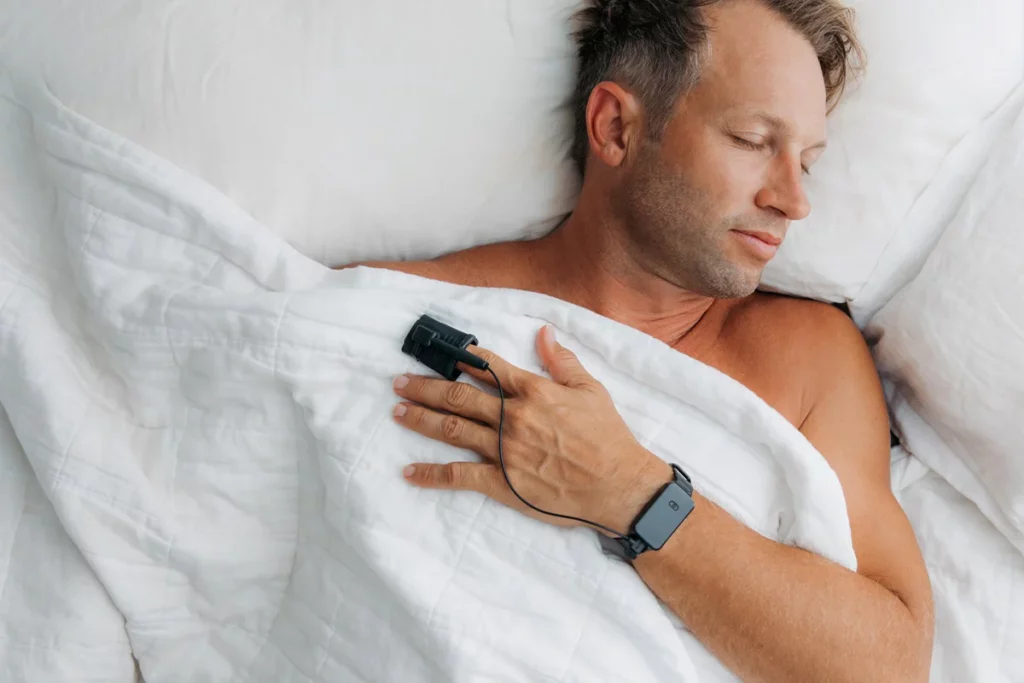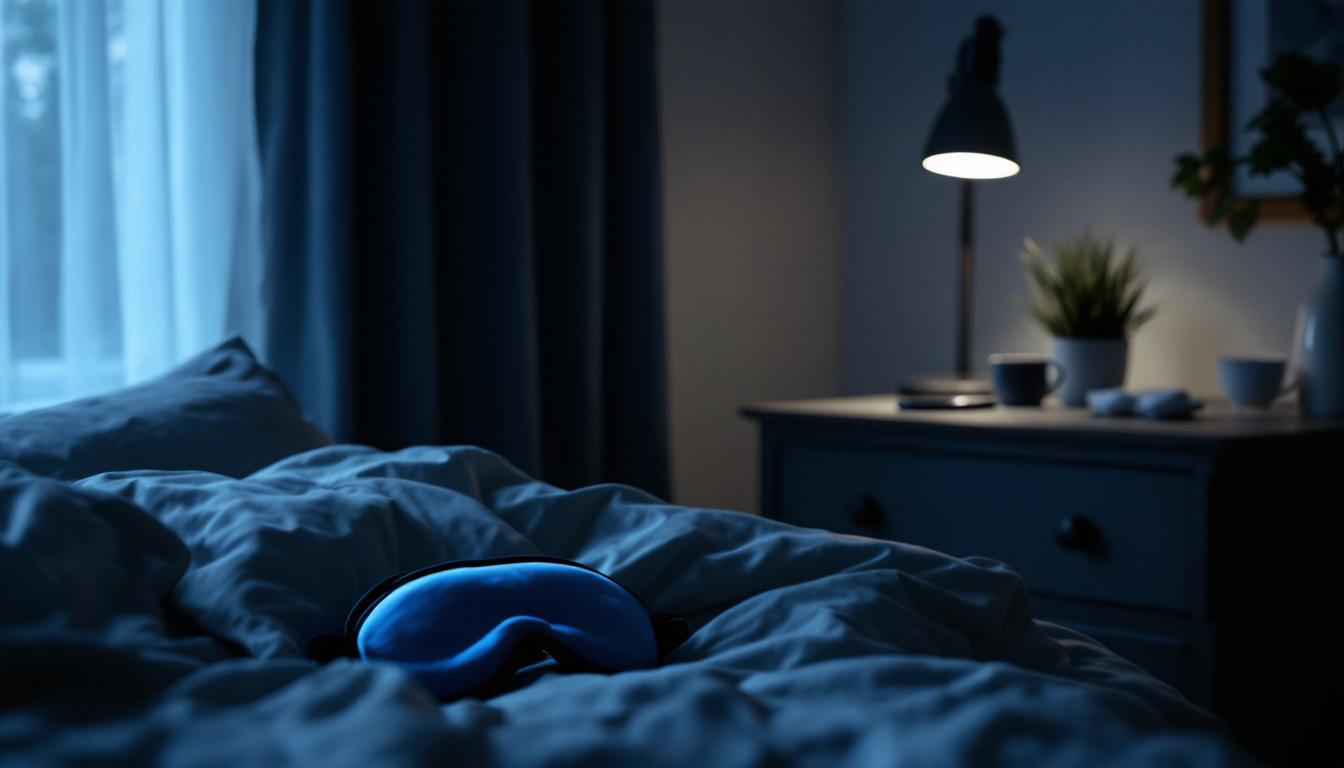Sleep disorders are increasingly recognised as significant health issues, affecting millions of Australians. In Sydney, the demand for sleep tests has surged as more people seek answers to their sleep-related problems. Understanding what a sleep test entails, its benefits, and the process involved is crucial for anyone considering this important step towards better health.
Understanding Sleep Disorders
Sleep disorders encompass a range of conditions that disrupt normal sleep patterns. Common issues include insomnia, sleep apnoea, restless legs syndrome, and narcolepsy. Each of these conditions can lead to severe consequences, not only affecting sleep quality but also overall health and well-being. The prevalence of sleep disorders is alarmingly high, with millions of individuals worldwide affected, often without realising the extent of their condition. This lack of awareness can delay diagnosis and treatment, exacerbating the impact on daily life and productivity.

Booking a sleep test Sydney is a significant step towards understanding and addressing sleep disorders. With the right preparation and guidance, individuals can gain valuable insights into their sleep patterns and overall health. By taking the time to understand the process, from consultation to interpreting results, patients can make informed decisions that lead to improved sleep quality and enhanced well-being.
Common Symptoms
Individuals suffering from sleep disorders may experience a variety of symptoms. These can include excessive daytime sleepiness, loud snoring, gasping for air during sleep, difficulty concentrating, and irritability. Recognising these signs is the first step towards seeking help. In addition to these symptoms, many individuals report experiencing vivid dreams or nightmares, which can further disrupt their sleep cycle. The interplay between sleep disorders and lifestyle factors, such as stress and diet, can also complicate the symptomatology, making it essential for individuals to consider a holistic approach to their health.
Learn more on: Home Sleep Study Sydney: Convenience Meets Technology
Impact on Health
Untreated sleep disorders can lead to serious health complications, including cardiovascular disease, diabetes, and obesity. Furthermore, they can affect mental health, contributing to anxiety and depression. Thus, addressing sleep issues is not merely about improving sleep but also about enhancing overall health. Chronic sleep deprivation has been linked to impaired cognitive function, which can affect decision-making and memory retention. Moreover, the societal implications are significant, as sleep disorders can lead to increased absenteeism in the workplace and higher healthcare costs, highlighting the need for greater awareness and proactive management of these conditions.
What is a Sleep Test?
A sleep test, or polysomnography, is a comprehensive assessment that monitors various physiological parameters during sleep. It is typically conducted in a sleep clinic or at home, depending on the severity of the suspected disorder and the recommendations of a healthcare professional.
Types of Sleep Tests
There are primarily two types of sleep tests: in-lab polysomnography and home sleep apnoea testing (HSAT). In-lab tests are more comprehensive, measuring brain waves, oxygen levels, heart rate, and breathing patterns. In contrast, HSATs are simpler and usually focus on monitoring breathing and oxygen levels. Raed more about oxygen on https://pubmed.ncbi.nlm.nih.gov/36162911/
What to Expect During a Sleep Test
During an in-lab sleep test, patients are typically asked to arrive in the evening. Sensors will be attached to various parts of the body, including the scalp, face, chest, and legs, to monitor sleep stages and physiological responses. The environment is designed to be as comfortable as possible, allowing for natural sleep patterns. For home tests, patients receive a portable monitoring device to wear while sleeping, which records necessary data for analysis.
In preparation for a sleep test, patients may be advised to avoid caffeine and alcohol for a few days prior to the assessment, as these substances can significantly affect sleep quality and the results of the test. Additionally, it is recommended to maintain a regular sleep schedule leading up to the test to ensure that the sleep patterns recorded are as representative as possible. For those undergoing an in-lab test, the presence of sleep technicians can provide reassurance, as they are trained to monitor the patient’s comfort and address any concerns that may arise during the night.
After the sleep test, the collected data is analysed by a sleep specialist, who will interpret the findings to determine if a sleep disorder is present. Common issues that may be identified include obstructive sleep apnoea, restless legs syndrome, or insomnia. Following the analysis, patients will typically have a follow-up appointment to discuss the results and potential treatment options, which may include lifestyle changes, the use of continuous positive airway pressure (CPAP) machines, or medication, depending on the specific diagnosis and individual circumstances.
Preparing for Your Sleep Test
Preparation is key to ensuring accurate results from a sleep test. Patients should follow specific guidelines to optimise their sleep quality during the test.
Consultation with a Specialist
Before booking a sleep test, it is essential to consult with a sleep specialist. They will assess symptoms, review medical history, and determine whether a sleep test is necessary. This consultation is vital as it ensures that the right type of test is conducted based on individual needs. The specialist may also discuss any lifestyle factors that could be impacting your sleep, such as stress levels, work schedules, and overall health. Understanding these elements can provide a more comprehensive view of your sleep issues and lead to more tailored recommendations. To know more about elements click here.
Pre-Test Guidelines
In the days leading up to the test, patients are advised to maintain their regular sleep schedule, avoid caffeine and alcohol, and refrain from taking sedatives or sleep aids unless directed by a healthcare professional. These measures help ensure that the test results accurately reflect the patient’s typical sleep patterns. Additionally, it is recommended to create a calming bedtime routine, which might include activities such as reading, gentle stretching, or practising relaxation techniques. Such routines can help signal to your body that it is time to wind down, potentially leading to a more restful night’s sleep prior to the test.
Furthermore, patients should consider their sleep environment as well. Ensuring that the bedroom is conducive to sleep—cool, dark, and quiet—can significantly impact sleep quality. If you are undergoing a home sleep study, it may be beneficial to set up your sleeping area in a way that mimics the conditions of a sleep clinic, where monitoring equipment is less likely to disrupt your natural sleep patterns. By taking these additional steps, you can further enhance the accuracy of the results and provide your healthcare team with the best possible data to work with.
Booking a Sleep Test in Sydney
Booking a sleep test in Sydney involves several steps, from obtaining a referral to choosing the right clinic.
Finding a Reputable Clinic
When selecting a sleep clinic, it is crucial to consider factors such as accreditation, the experience of the staff, and the range of services offered. Researching online reviews and seeking recommendations from healthcare providers can also help in making an informed choice.
Insurance and Costs
The cost of sleep tests can vary significantly depending on the type of test and the clinic. Many private health insurance plans cover sleep studies, but it is advisable to check the specifics of the policy beforehand. For those without insurance, discussing payment options with the clinic can provide clarity on potential costs.
Understanding the Results
After the sleep test, patients will receive a report detailing the findings. Understanding these results is essential for determining the next steps in treatment.
Interpreting Your Sleep Study
The sleep study report will include information on sleep stages, the number of apnoeas or hypopnoeas (shallow breathing) experienced, and any other abnormalities detected during the test. A sleep specialist will explain these findings and discuss their implications for treatment.
Follow-Up and Treatment Options
Based on the results, various treatment options may be recommended, including lifestyle changes, continuous positive airway pressure (CPAP) therapy for sleep apnoea, or medication for insomnia. It is crucial to follow the specialist’s advice to improve sleep quality and overall health.
Potential Risks and Considerations
While sleep tests are generally safe, there are some considerations to keep in mind.

Risks of In-Lab Testing
In-lab sleep tests involve the placement of sensors and monitoring equipment, which some individuals may find uncomfortable. However, the benefits of obtaining accurate data far outweigh the temporary discomfort. Patients should communicate any concerns with the sleep technician to ensure a comfortable experience.
Home Testing Limitations
Home sleep tests, while convenient, may not capture the full spectrum of sleep disorders. They are primarily designed for diagnosing sleep apnoea and may not be suitable for other conditions. A thorough discussion with a sleep specialist can help determine the most appropriate testing method.
Conclusion
In a city as vibrant and bustling as Sydney, ensuring a good night’s sleep is crucial for maintaining energy levels and productivity. As awareness of sleep disorders continues to grow, so does the importance of seeking professional help. Those experiencing symptoms should not hesitate to reach out to a sleep specialist and explore the benefits of a sleep test.
